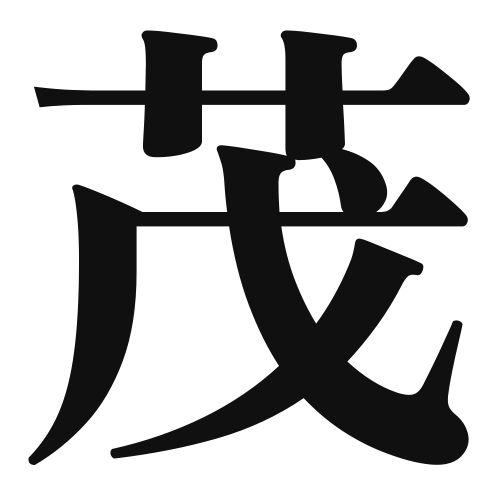1. Overview of Meaning
The kanji “茂” (shō) means “lush” or “thick,” often referring to dense vegetation or abundant growth. It conveys a sense of richness in nature, particularly in plants and trees.
2. Formation and Radical
Formation of the Kanji: The kanji “茂” is a phonetic-ideographic character (形声文字). It combines the radical for “grass” (艹) at the top, indicating its relation to plants, with the phonetic component “毛” (mō), which suggests the sound.
Radical: The radical of “茂” is 艹 (grass), which is commonly found in kanji related to plants and vegetation.
3. Examples of Usage
Common Words and Phrases:
- 茂み (しげみ, shigemi) – thicket
- 茂る (しげる, shigeru) – to grow thickly
Example Sentence in Daily Conversation:
この公園は木々が茂っていて、とても美しいです。
(This park is lush with trees and very beautiful.)
4. Synonyms and Antonyms
Similar Kanji:
- 繁 (はん, han) – means “prosperous” or “abundant,” often used in contexts of growth but can imply a more active or thriving state.
Antonym:
- 枯 (こ, ko) – means “withered” or “dry,” representing the opposite of lushness and abundance.
5. Cultural and Historical Background
Relation to Japanese Culture: The concept of lushness is significant in Japanese culture, often associated with the beauty of nature and the changing seasons. It reflects the appreciation for greenery in traditional gardens and landscapes.
Proverbs and Idioms:
「茂る木には実がなる」 (Shigeru ki ni wa mi ga naru) – “A tree that grows thick bears fruit,” which emphasizes the idea that hard work and growth lead to rewards.
